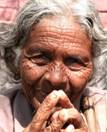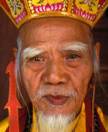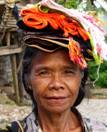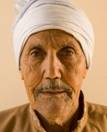|

|
|
UN Open-Ended
Working Group on Ageing Daily Summary - 1
By Bethany
Brown
August 1, 2011
2nd Session of the UN Open-ended
Working Group on Ageing
The Morning Session
Member states and civil society were invited to make
opening statements. The Chair repeated the intention
of the Open-Ended Working Group (OEWG) to facilitate a
dialogue. Many states were present but did not
make statements. Few expressed indecision. Most
statements were in favor of or against a
legally-binding instrument to protect the human rights
of older persons. States from Latin America and
the Caribbean spoke strongly and eloquently in favor
of a legally-binding instrument. The delegation from
Brazil in particular brought a distinguished team of
experts, including a member of the Human Rights
Commission for Brazil’s government.
Some member states spoke against a legally-binding
instrument, expressing that dialogue alone could
strengthen the human rights of older persons.
Many states made implicit or explicit reference to the
resource-intense process of a new convention. The EU
noted that every treaty body should attend to the
rights of older persons under the equality and
nondiscrimination provisions of international human
rights law. While these provisions were
discussed at length during the April OEWG, no
consensus of normative protection yet exists.
To build consensus and a more robust dialogue, more
needs to be heard from Asian and African states.
Japan highlighted population ageing within its own
borders, but it exists across the whole world.
African states can be proud that life expectancy at
age 65 rivals that of many of the countries of Latin
America and Europe. Older people may be
particularly marginalized where populations appear
very young when measured by a national average age.
Consultations are still ongoing for the election of an
African region Bureau member.
Representatives from civil society gave short
presentations, including a representative from an
organization in Cameroon. Many noted ageist
attitudes families, the workplace, and communities are
rife and often accepted. These have cumulative
effects on older people and their empowerment to
exercise their rights. Ken Bluestone spoke on
behalf of the newly-formed Global Alliance, providing
a short introduction for its work.
A Special Rapporteur. Notably throughout the
morning, specific reference to the possibility of a
Special Rapporteur was included in many statements,
whether supportive of a legally binding instrument or
not. The United States included a Special
Rapporteur in its incremental approach, suggesting a
range of options with efforts and attention first put
toward the 10-year review of the Madrid International
Plan of Action on Ageing (MIPAA), next exploring a
Special Rapporteur, and finally, exploration of the
potential for a legally-binding instrument.
The Afternoon Session
In the afternoon, a panel of experts spoke about
discrimination against older persons. Panelists
discussed the dire problems of many older people in
South Africa, and the lives of older people in
Afghanistan. They further explored concepts for
a legal framework around discrimination against older
persons, and provided a summation of the findings of
the work of the first OEWG with regard to legal
gaps. Few explicit references to age
discrimination exist at all, and focus is often
narrowly on specific subsets of older persons, such as
women or those with disabilities.
Normative Gaps. Little discussion was based around the
normative gaps that exist from state to state.
Consensus around the legal definition of
discrimination is clear. What is less clear,
based on the discussion from the floor in the
afternoon session, is whether states are willing to
recognize what discrimination gaps exist in practice.
Jurists in member states will only analyze equality
and nondiscrimination if they can identify that a
prohibited form is at issue. Civil society can
seize the opportunity to shine a light on the
normative gaps existing as discrimination in the
identified discussion topics this week, supplying the
facts and real-life experiences of older people.
Submitted by
Bethany Brown, JD*
Policy and Advocacy Fellow, HelpAge USA
*New York Bar Admission Pending

 

|





